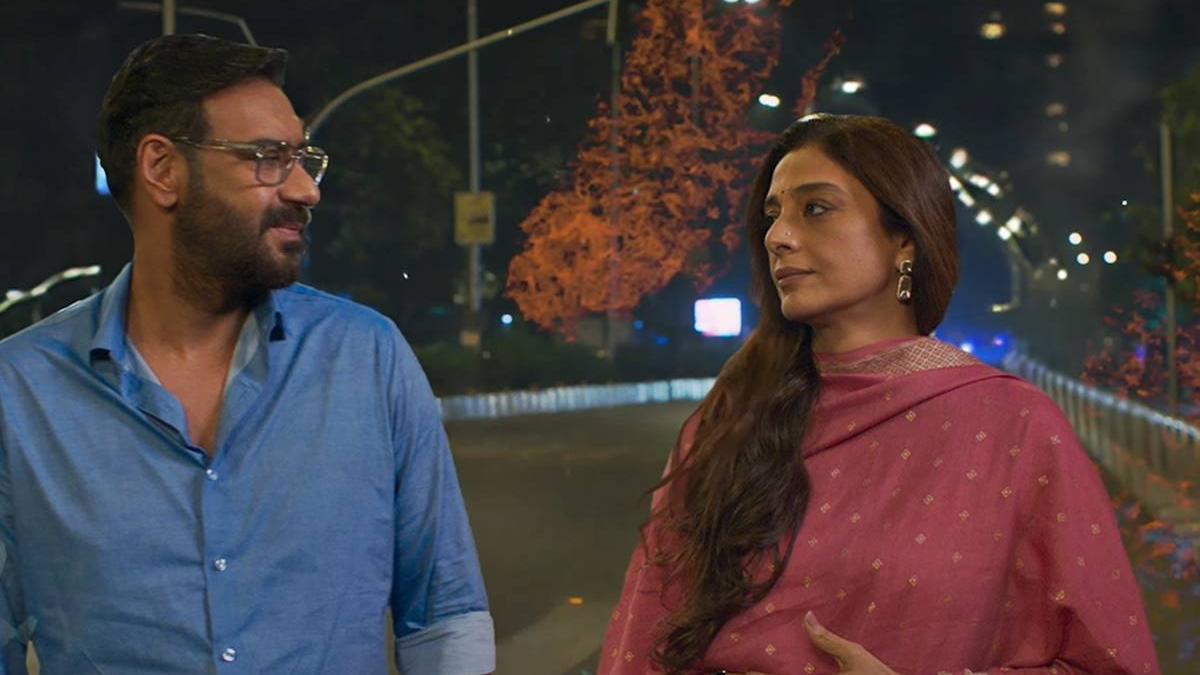
Sometimes we come across stories on the crime pages of vernacular newspapers where the motives behind certain offenses leave us utterly perplexed. One such tale of extreme renunciation for love is the core of Writer-director Neeraj Pandey’s latest venture, “Auron Mein Kahan Dum Tha”. Departing from his trademark high-stakes espionage thrillers, Pandey attempts to weave a narrative centered on self-sacrifice in romance. Promising a refreshing simplicity, the film unfortunately sinks into tedium, failing to live up to its potential.
The main issue lies in the failure to consistently translate the bitter-sweet soul of the story onto the screen. One can’t help but wonder if the narrative would have been better served by a less star-studded cast or perhaps by introducing fresh locations in Mumbai that don’t resemble familiar, over-used sets. Additionally, a less expository trailer could have heightened curiosity, and a more humble portrayal of the central character could have lent authenticity. Instead, the attempt to surge emotionality with an over-the-top background score overshadows the scene’s sentiments.
At the heart of the story are Krishna (portrayed by both Shantanu Maheshwari and Ajay Devgn) and Vasudha (portrayed by Saiee Manjrekar and Tabu), two lovers separated by the harsh hand of fate. Living in a chawl, Vasudha’s socio-economic background forces her to move on, yet she can never truly erase Krishna from her thoughts. For Krishna, Vasudha remains the core purpose of his existence. The anticipation of how these two would reconnect provides the film’s crux. However, the anticipation and journey towards their initial separation exceeds the ensuing narrative, largely carried by the younger actors who portray their youthful selves with more flair and engagement.
Neeraj Pandey constructs elaborate sequences around Ajay Devgn to bolster his larger-than-life persona, which detracts from the essence of sacrifice—the sole motif of this love story. Pain, loneliness, and suffering struggle to resonate as the film remains stubbornly fixated on glorifying its leading man. Krishna, akin to a low-profile spy, required subtle handling, yet Pandey appears too eager to lionize him, presenting unnecessary stardust instead of understated realism.
.
Despite space for selfless love and an audience for old-school melodrama, Devgn and Tabu’s chemistry doesn’t align with the story’s soul. Their interactions fail to spark, feeling more monotonous than mesmerizing, and M.M. Kreem’s music does little to remedy this. Jimmy Shergill steps in as the predictably lackluster third wheel, contributing no fresh excitement to the narrative.
The film does offer sporadic moments of self-referential humor, though many fall flat. An exception being when a character switches on the car radio to play “Jeeta Tha Jikse Liye” from the 1993 film Dilwale – a nostalgic nod to spurned lovers of the 90s that unexpectedly garners genuine smiles.
The disparity between the younger and older versions of the characters creates a noticeable divide. Shantanu Maheshwari, having demonstrated his talent in “Gangubai Kathiawadi”, once again showcases his potential as young Krishna, while Saiee Manjrekar adeptly mirrors the demure yet resilient girl-next-door. However, the TV soap-like treatment lets down their spirited performances, leaving viewers unconvinced that Shantanu and Saiee could evolve into Ajay and Tabu, both physically and emotionally.
This inversion of the usual Bollywood tradition, where younger actors set the stage for the seasoned stars, feels awkward. Here, it’s the flashbacks that vivify the scenario. This internal conflict renders “Auron Mein Kahan Dum Tha” an inconsistent theatrical piece. Despite strong source material and a promising start, the film finishes on a hollow note.
In summation, “Auron Mein Kahan Dum Tha” currently in theatres, strives to reflect the timelessness of love and sacrifice. However, it’s weighed down by dated tropes and a misaligned execution, failing to fully blossom into the profound cinematic experience it yearned to be.












